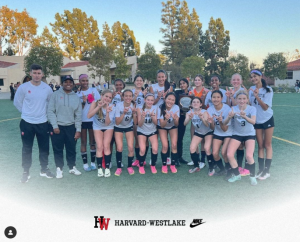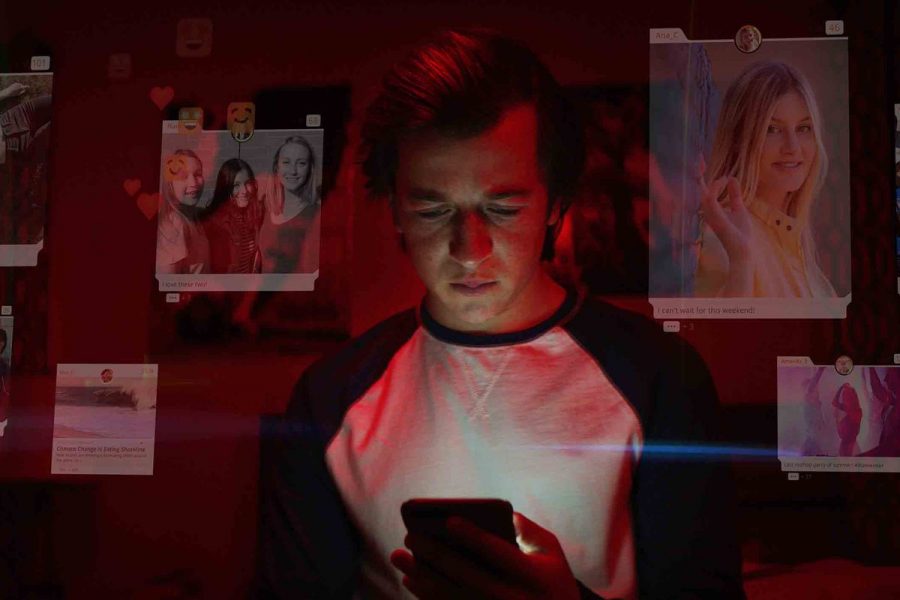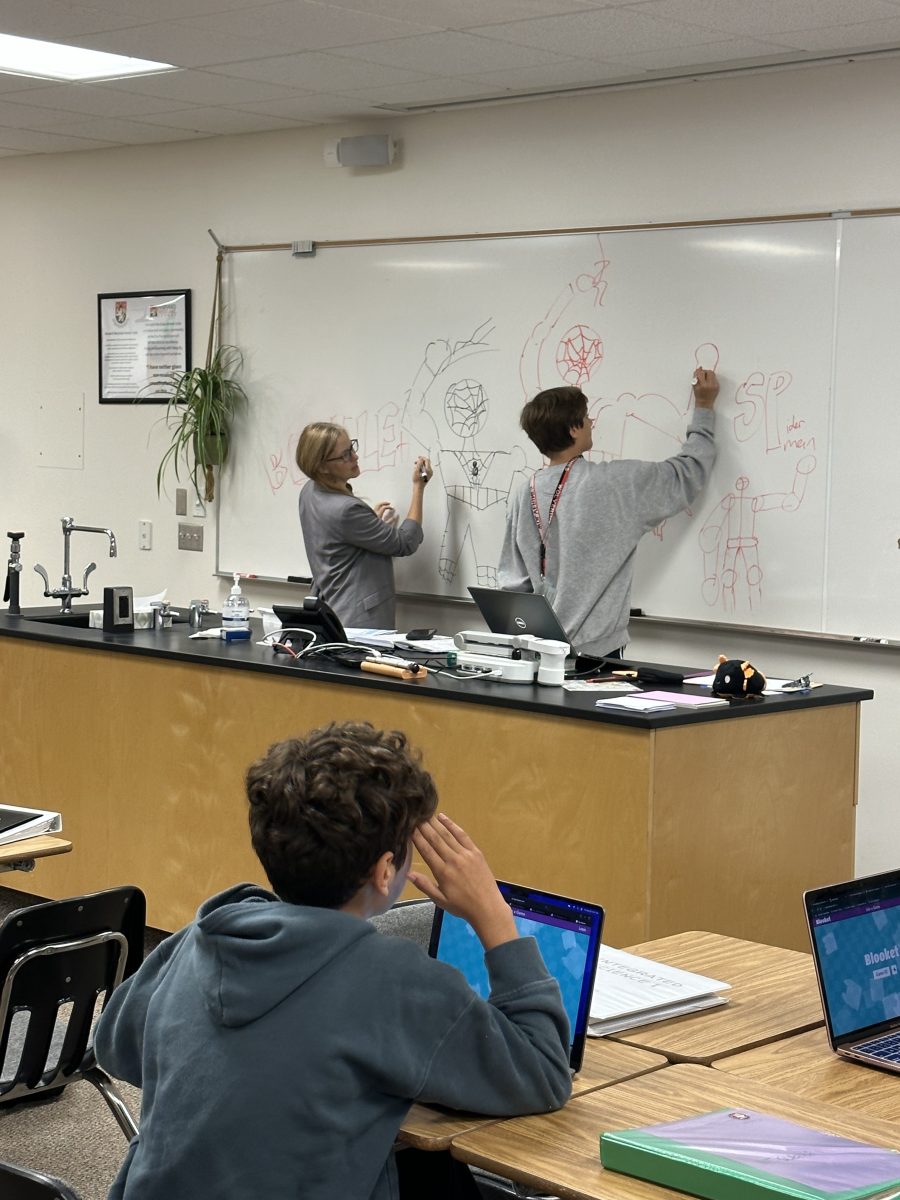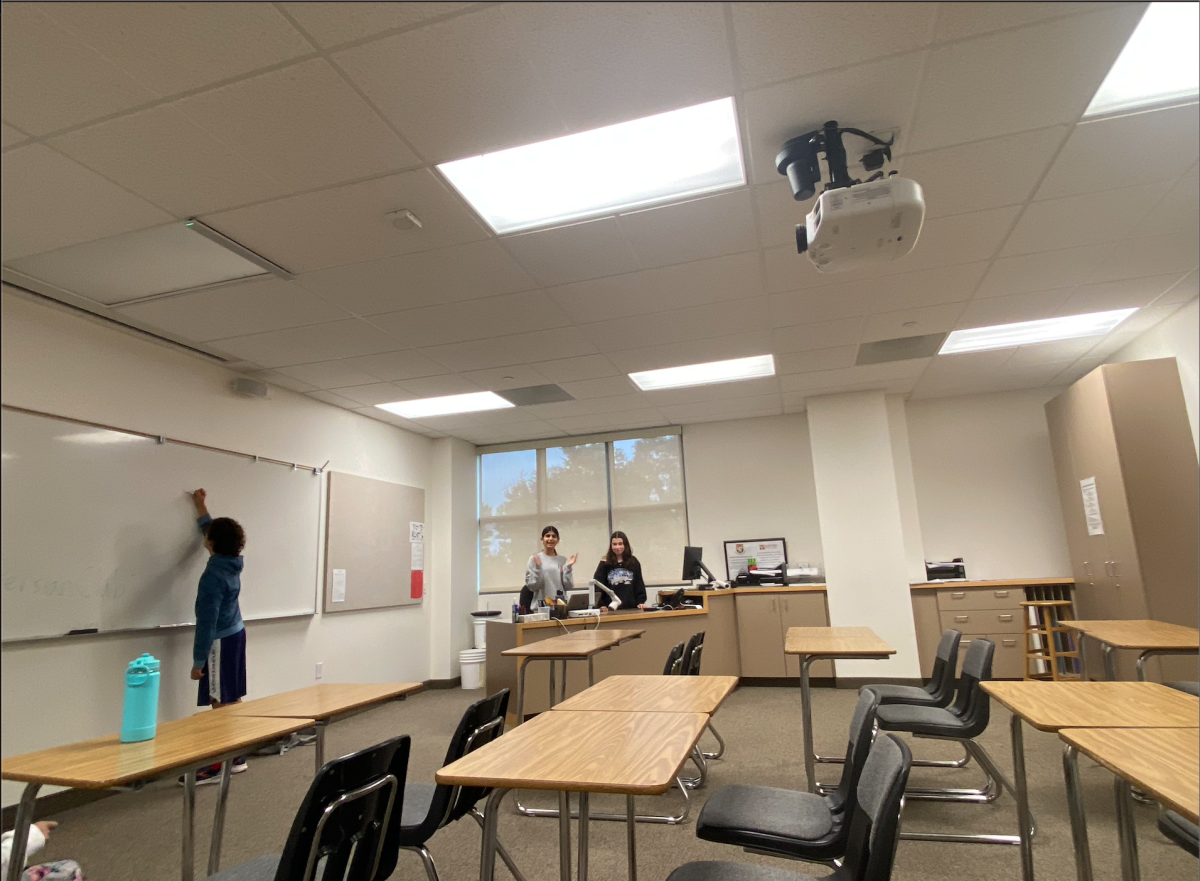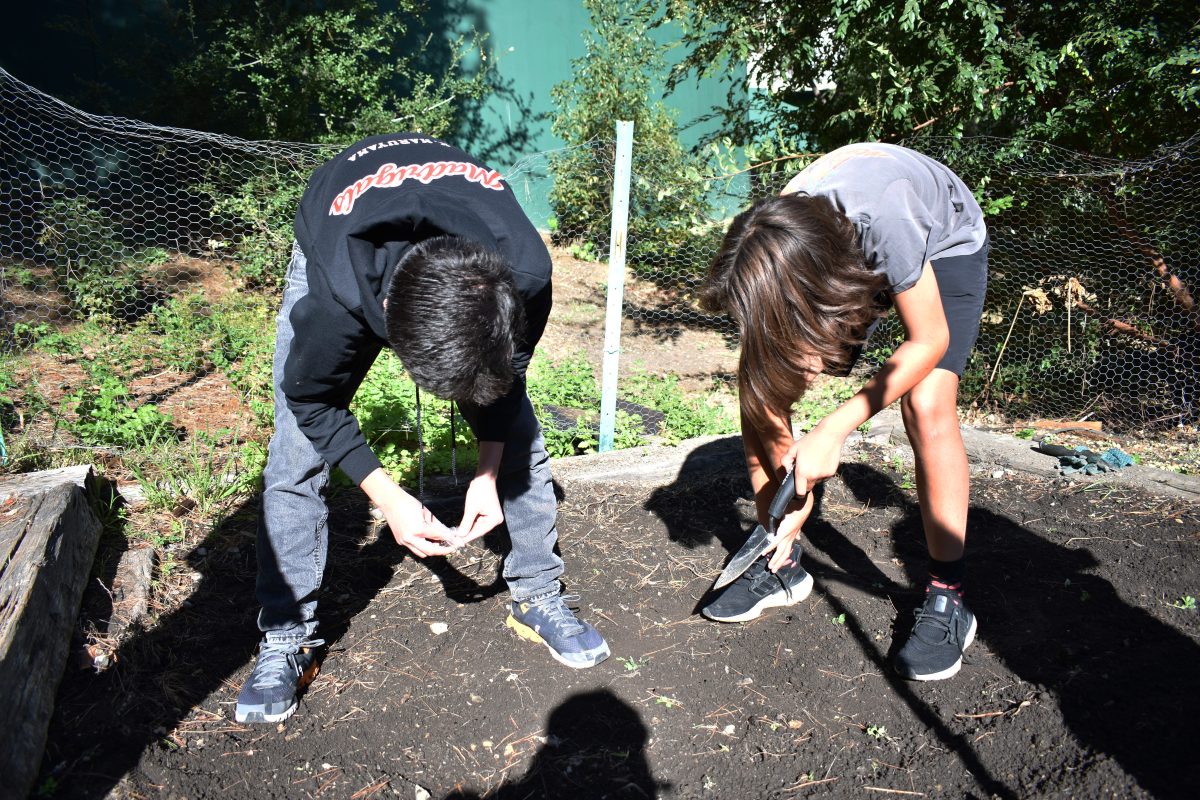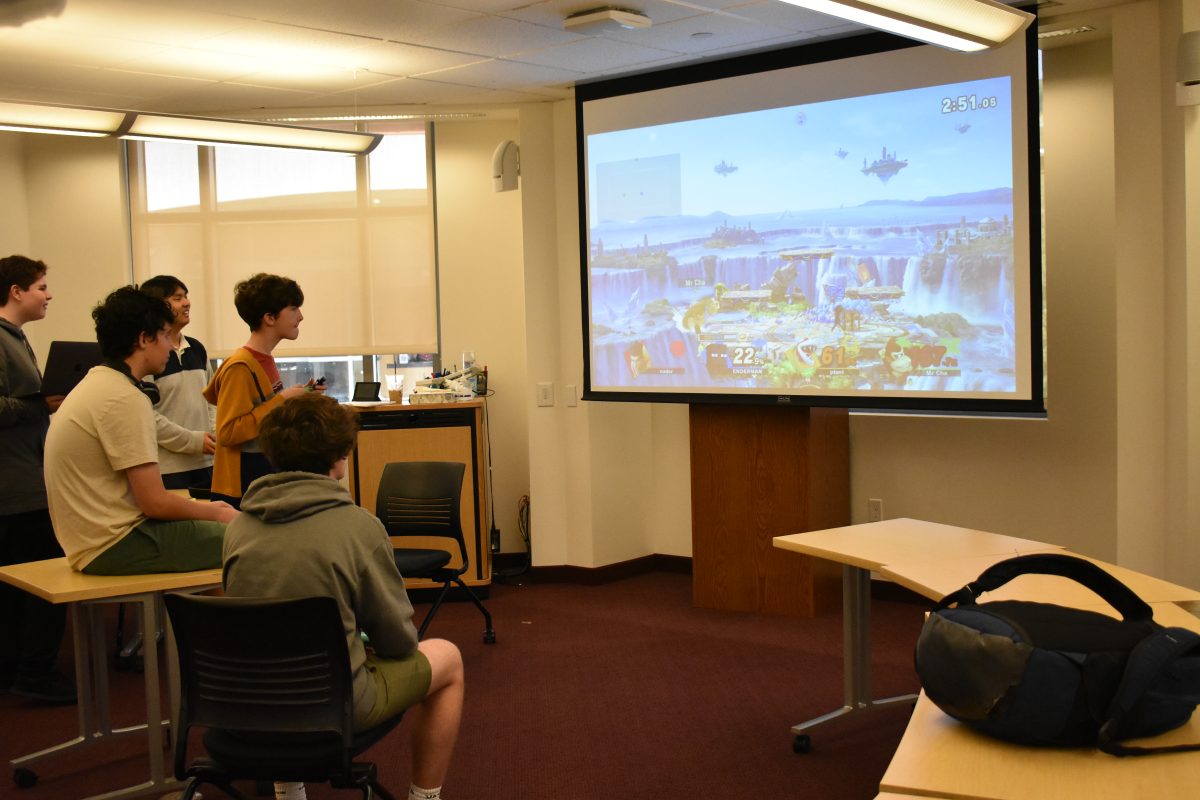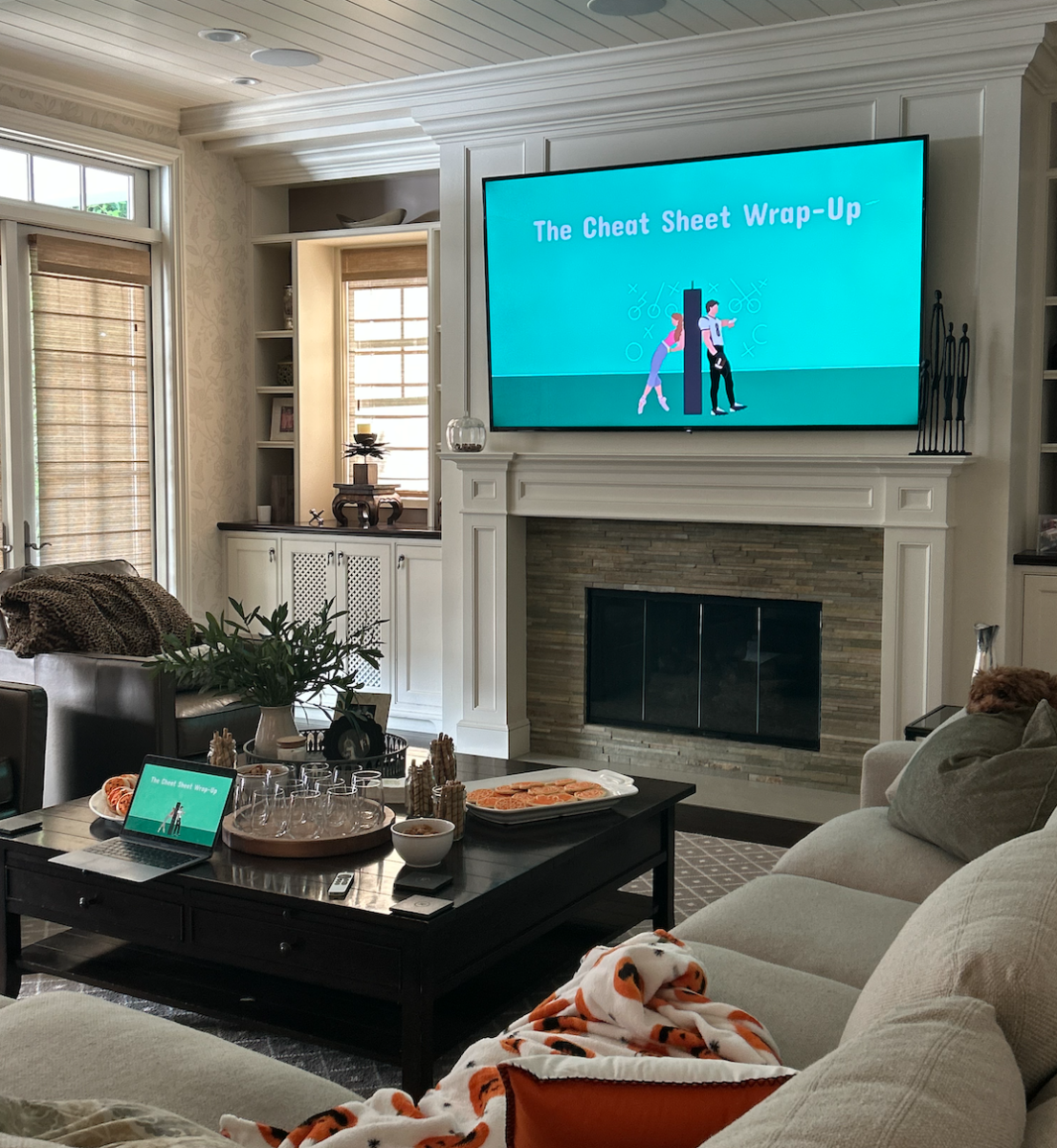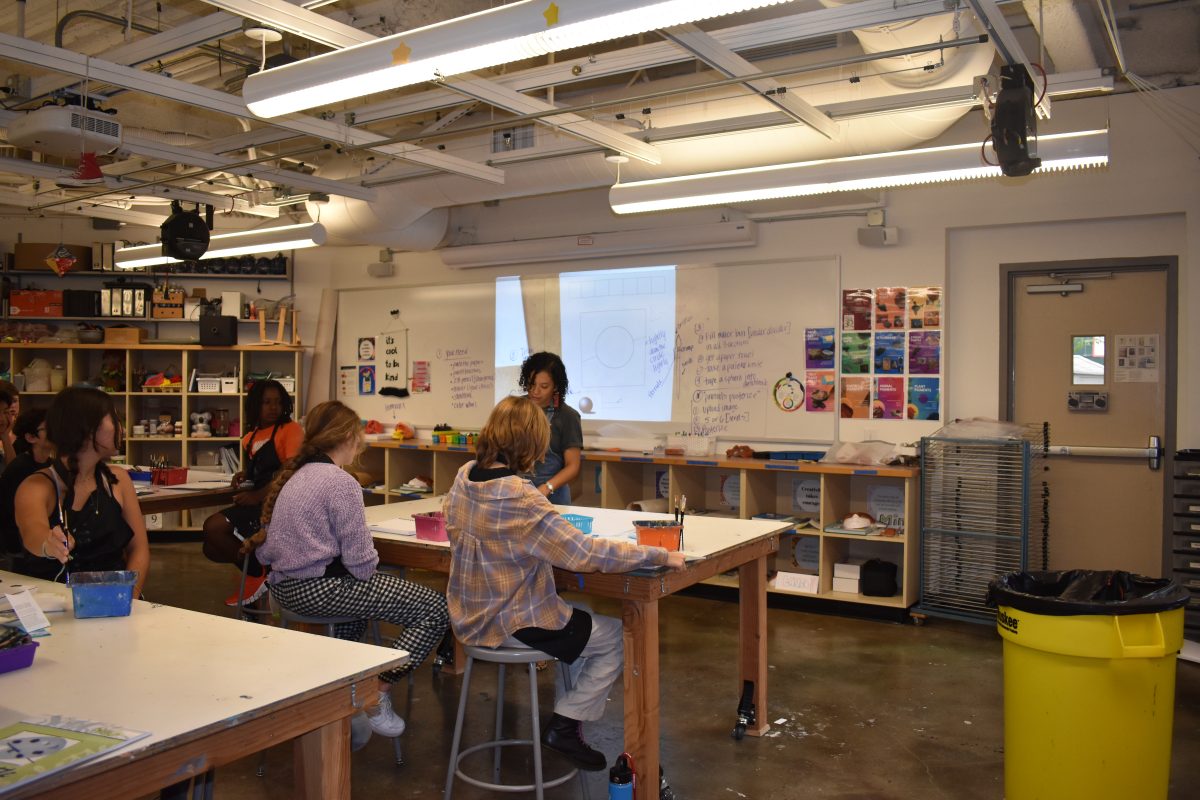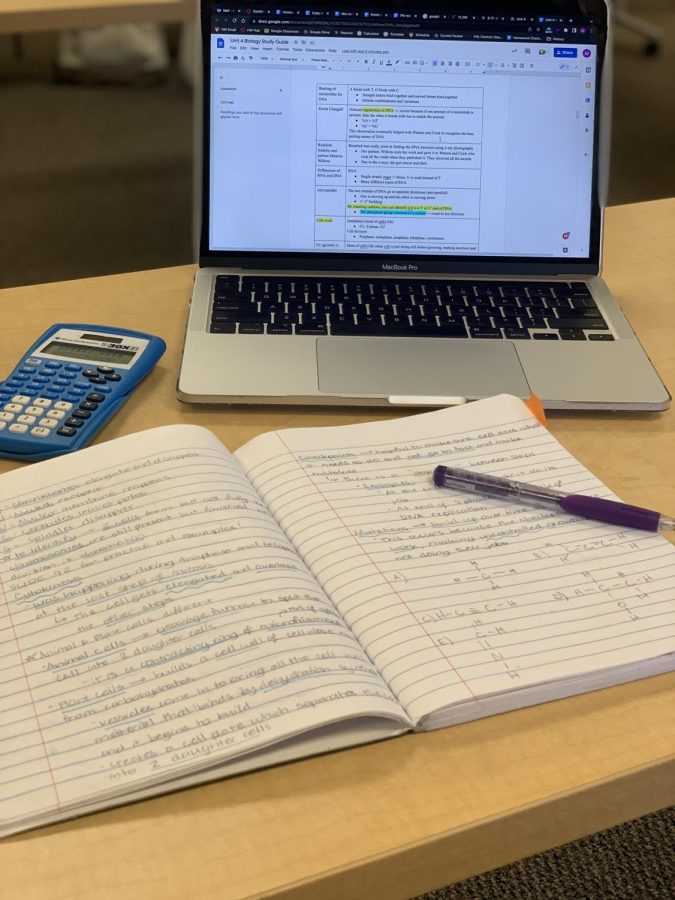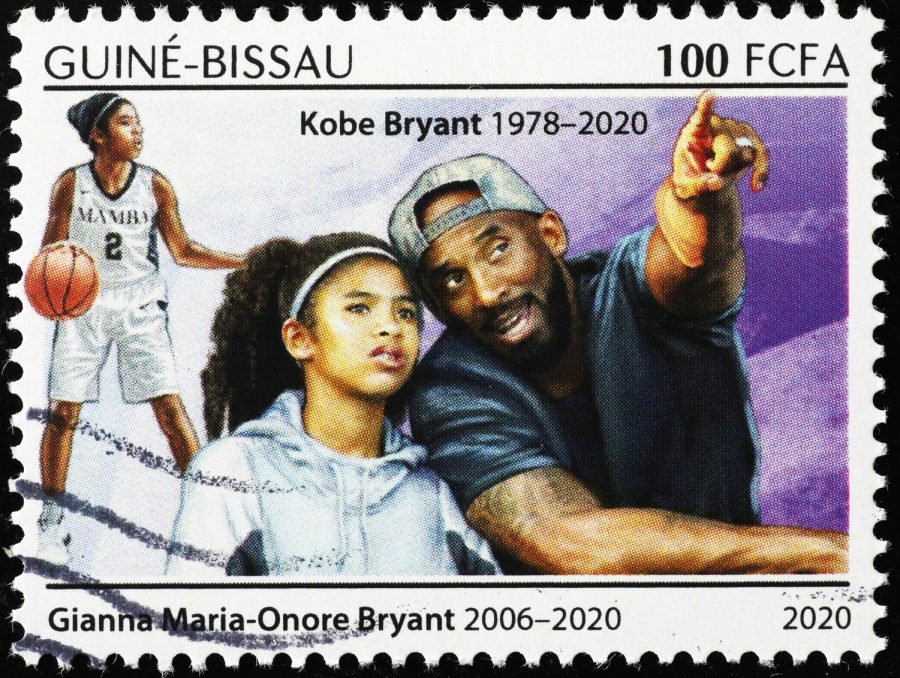Cue the dramatic music. The quote “Nothing vast enters the life of mortals without a curse” fades into view. This is “The Social Dilemma”, a docu-drama on Netflix chronicling the terrors of social media. But what really is the social dilemma the title refers to? Is it “just another one of those documentaries that are meant to scare you, causing a short fad that ultimately fizzles out in the end,” as Shane Lackaman ‘25 says, or is it a warning that social media is going to lead to the destruction of humanity, as many of the interviewees in the film pointedly put it?
The Social Dilemma is a 2020 documentary drama directed by Jeff Orlowski, known for producing the critically acclaimed documentaries “Chasing Ice” (2012) and “Chasing Coral” (2017). The film dives deep into the psychology of our brains, the controller of our phones- artificial intelligence, as well as the consequences of technology and social media. It weaves portions of interviews, data and information into the plotline, which centers around a family where the kids, Ben (played by Skylar Gisondo) and Isla (played by Sophia Hammons), are addicted to their phones.
In the docu-drama, the interviewees, many of them from companies that created these controlling social media apps- Instagram, Snapchat, Facebook, Twitter, and more, discussed the psychology of social media and how it affected our thoughts. For instance, how the “like” button works. A simple click, a small red heart, and your brain immediately responds to the number- too little, and someone’s feelings are hurt- a lot, and that person may feel validated in life. These small, seemingly meaningless things affect our daily life and may cause some teens to experience thoughts they wouldn’t have experienced without social media.
What really was shocking was after explaining the like button, the film displayed some statistics,which showed that the self-harm and suicide rate of Gen Z (people born between mid to late 1990s to early 2010s) girls have risen, some of the catagories showing triple in amount. And, when you look at the data, the interviewee explains that the start of this rise happens as social media is introduced to the world.
Another topic this documentary discussed was how artificial intelligence (AI), the “monster” behind your phone, sucks you in using notifications. For instance, in the movie plot there was a point where Ben, the teenage boy, was given a proposal by his mom that if he could stay off his phone for a week, she would buy him a new phone screen, which had previously been cracked. Unfortunately for Ben, he wasn’t able to accomplish this feat, because deep inside the phone, AI (played by Vincent Kartheiser) realized that Ben wasn’t spending as much time on his phone as he normally would, and he started sending out notifications that would hook him back in.
AI is so calculating with their algorithm that they know what will hook you in back to looking at your phone, whether that is a notification from a new YouTube video from your favorite creator or an Instagram notification that your friend is going live. It is a little frightening how much your phone knows about you.“ It [the Social Dilemma] has made me realize that social media companies know exactly your next move, [which is] kind of scary,” an anonymous person said in a survey sent out by Spectrum to Harvard Westlake (HW).
Another anonymous person shared a similar sentiment, “Everytime I scroll through Instagram, I am thinking about how it is so specific to me and a computer knows what I like and think.”
I thought the movie was very informative and well thought out, however there was an element of it that I wasn’t a big fan of. While the documentary/interview portion was very informative, the movie/drama portion, though it did add interest to the film, was a little over the top.
For example, the mom in the family buys a safe that you can set a timer to, and it will not open until then. She employs this safe at dinner, and collects everyone’s phones. A mere five or so minutes into the dinner, Isla, the young girl, goes to the kitchen, puts on some protective goggles, raises a hammer (somehow that was in the kitchen), and smashes the safe to get to her phone. She then runs upstairs. I was shocked at this scene. I kept thinking about it through the rest of the film, and it took away the actual point/argument of the scene, which was that the kids were so used to using their phone at dinner, so when they didn’t have it, it was impossible to have a normal conversation.
The big takeaway I got from “The Social Dilemma” was that we are the products. Our time, our attention, is the thing that makes these social media companies so rich. Ads pay the companies to showcase their products, which we then see. So, we are the products, consumer. And the worst part is that we are the consumers unknowingly.
“I just couldn’t believe that these social media apps are using us to make money,” an anonymous person shared in their survey response. “Every day I get sucked into all of the notifications and spend hours on the app without realizing how much time went by and now I know that they have tricked me into playing into their money making scheme.”
I feel a very similar way. It is crazy how without watching “The Social Dilemma”, I would have never known that the key to technology and the success of social media is the viewer’s interest.
Throughout our life, especially now in quarantine, where we are holed up inside our houses with little to do, technology has always been there for us. Gen Z is the first generation where technology, phones, and social media have been available in almost our entire lifetime. The Social Dilemma provided a gateway to highlighting the terrors of social media that we are unbeknownst to. However, it’s hard to actually do something with that new found knowledge. “I wish the movie gave advice other than deleting social media, which doesn’t feel realistic in our situation in quarantine,” said Ella Jacobs ’24.
I agree with the statement; it is easy to watch this documentary, and learn new things, but the key to changing our ways is to actually doing something about this crisis. As we deal with the social, political and economical changes in our world, I wonder how we will ever be able to accomplish this feat, with technology already playing an enormous part of our lives.

